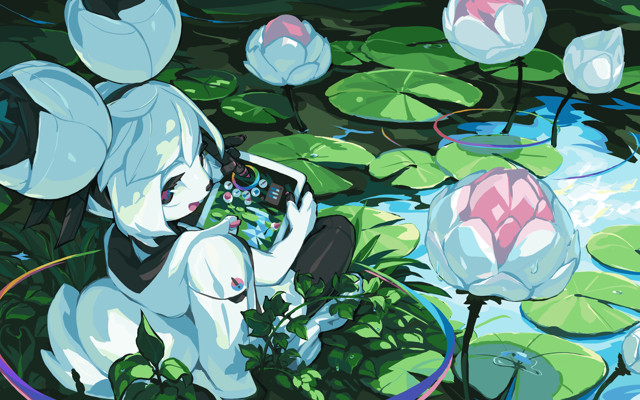
This page showcases the mascots I designed for Free and Open Source projects, along with my other volunteer work in the FOSS community.
What is Free and Open Source?
A program is Free Software if it was released under a free software license.
Open Source means the source code of a program can be freely accessed.
A Free Software License permits all people to freely use, modify, and distribute a program and its source code. Common examples are: GPL, APL, MPL, MIT, BSD, etc. Free software licenses ensure programs and their source codes to be public resources. On principle, all people can participate in the development and provide other contributions. Free software licenses are the legal safeguards of the modern Open Source Software Development Model.
Almost every modern software has some free software parts in them — the engines of most modern web browsers, the kernels of Linux and Android operating systems. Most popular apps are built on top of some free software frameworks and libraries. Free software programs are everywhere. They are the bolts and gears of modern information systems.
The free and open source ideal is friendly for community members to participate in a FOSS project. As a volunteer, I designed mascots and provided Chinese translations for some FOSS projects.
Mascots
-
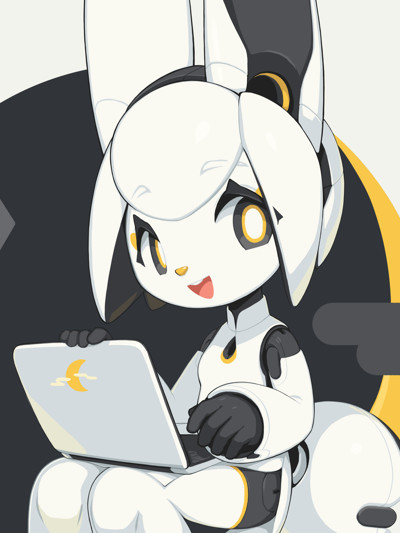
Xiaoyu the Cyber Rabbit
Xiaoyu the Cyber Rabbit is the mascot I designed for YueScript, a free and open source programming language.…
-
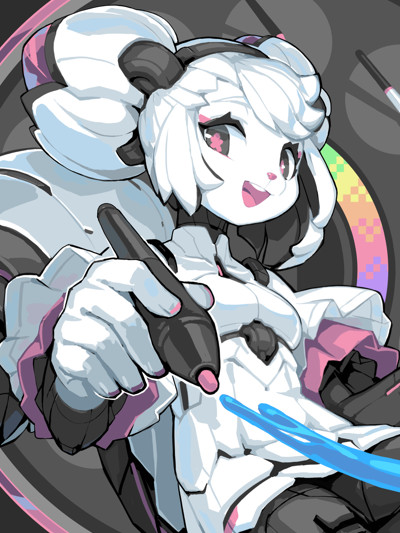
Kiki’s Unplanned Canvas Expansion
This is the splash art I created for Krita, used from version 5.2.3 to 5.2.15. It was a…
-
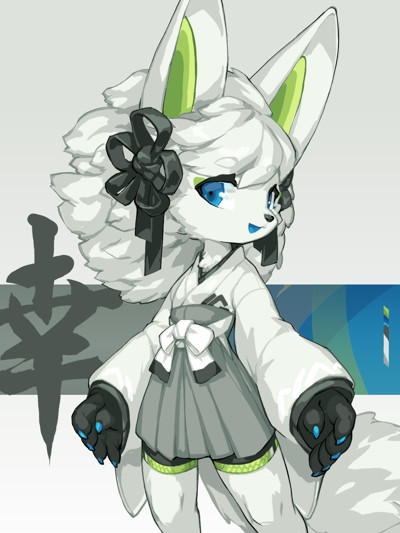
Sachi the Spirit Fox
Sachi the Spirit Fox is the mascot I designed for Squishy, a free and open source modern SCSI…
-
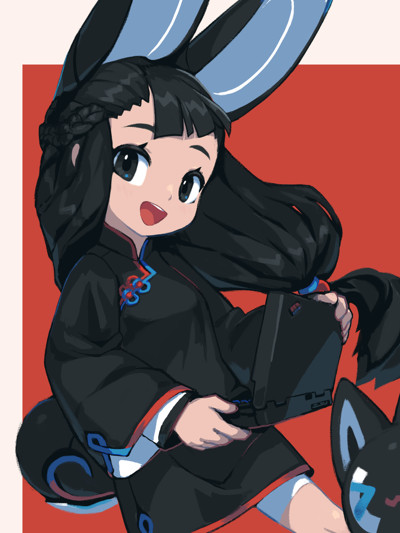
An-an the Rabbit Girl
An-an the Rabbit Girl is the mascot I designed for Anthon Open Source Community (AOSC). Tong-tong the Cat…
-
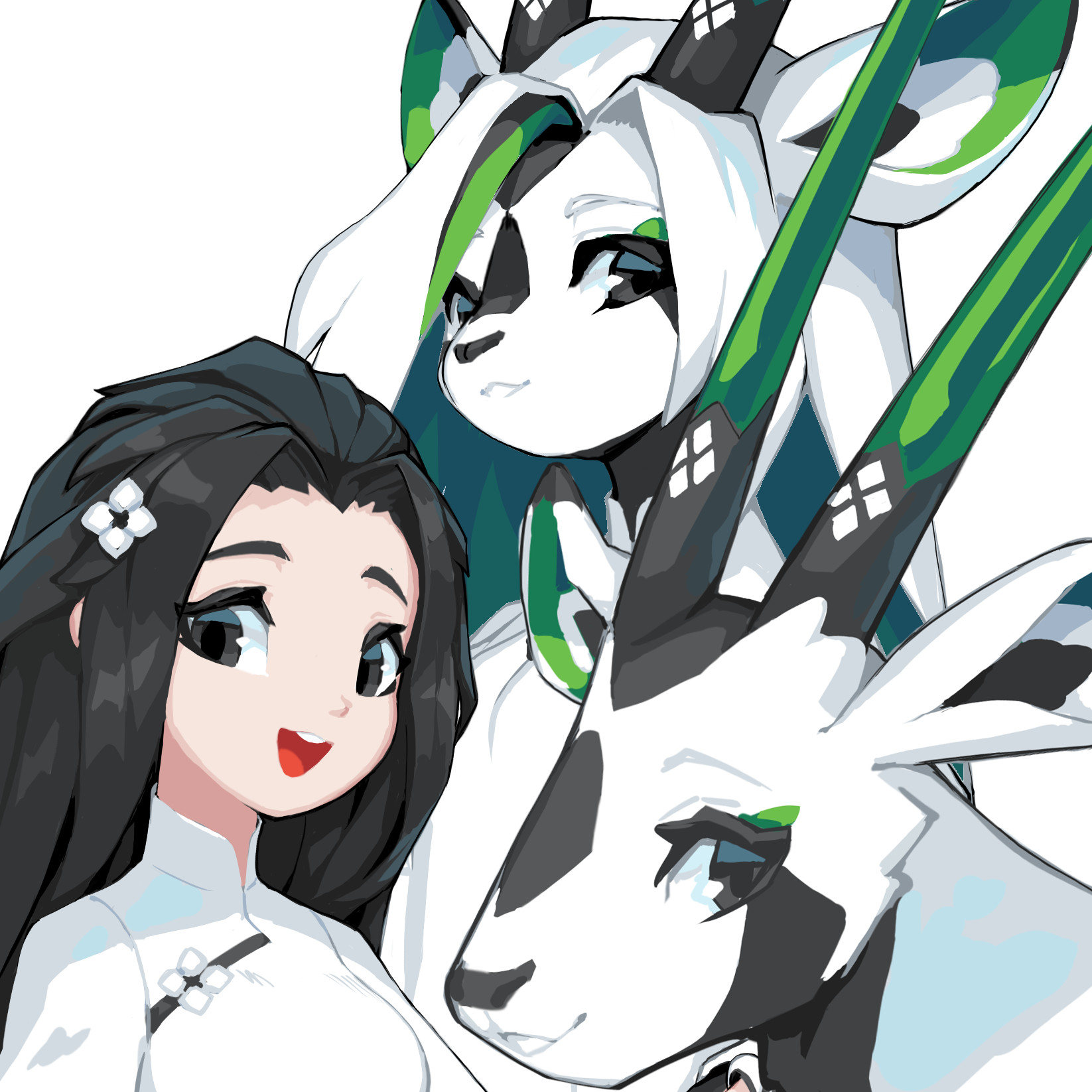
Characters based on my FOSS mascots
I have designed mascots for many free and open-source software projects. I have redesigned some them into original…
-
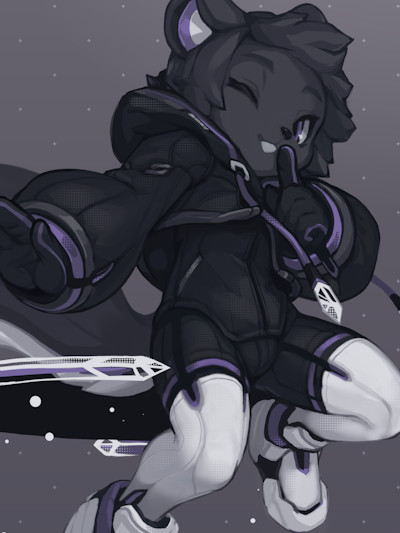
Zoey the Cyber Mink
Zoey the Cyber Mink was a mascot I designed for Singularity Viewer, a free and open source Second…
-
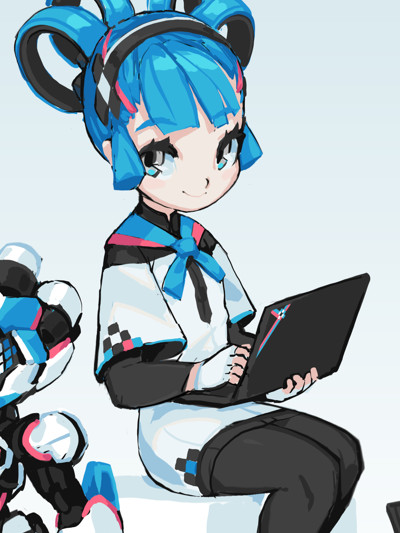
GDBot and Sophia
Sophia and GDBot are the mascots I designed for GDQuest. They are being used as sample characters in…
-
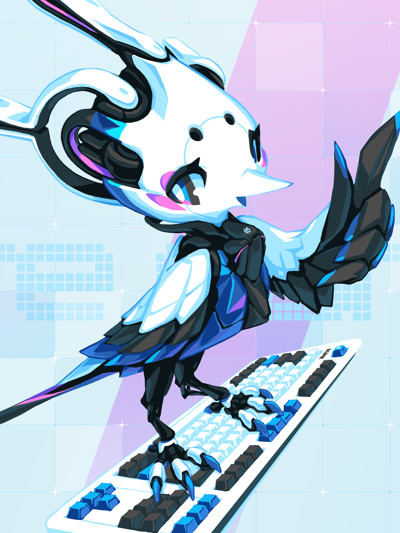
Kate the Cyber Woodpecker
Kate the Woodpecker is the mascot I designed for Kate, a free and open source advanced text editor.…
-
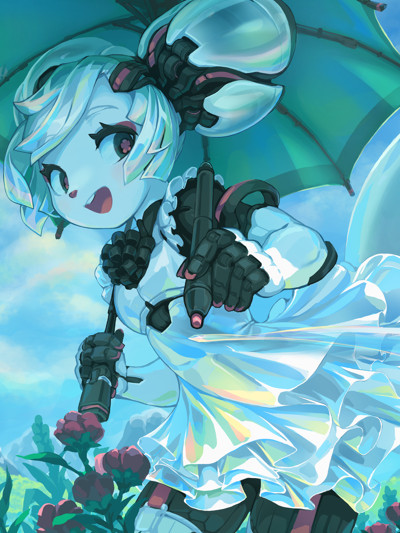
Kiki with a Parasol
This is the splash art I created for Krita version 5.0. It was in use up to version…
Chinese Translations
When using free and open-source software, I sometimes ran into programs that I use quite often, but lack high-quality Chinese translations. If the project opens for translation, I usually provide a complete simplified Chinese translation for it. This not only enhances UI consistency for myself, but also assists Chinese users with limited English skills in getting started.
Due to the contributor credit policies of the projects, changes in the code repositories or branches, etc., my credit as a translator may not be reflected in some projects. Below, I only list the projects where I believe my contributions were notable, and briefly describe how I became involved with them.
Krita
Krita is a free and open source digital painting application. I began using Krita when I switched from Windows to Linux, as it was the most comprehensive free and open-source painting app that could replace Photoshop. I designed the mascot Kiki for Krita and drew the startup image for each subsequent version. To support Chinese artists using Krita, I retranslated it in 2018, and have since been maintaining Chinese translations for Krita’s software, documentation, website, Steam description, etc.
In addition, I updated the Krita’s page on Chinese Wikipedia equivalents, wrote articles about Krita on local platforms, answered common questions, collected community feedback and passed it on to the development team, and reported bugs on behalf of users who are not familiar with English.
Before participating in the Chinese translation of Krita, I always used the English interface on my system due to poor Chinese translations in commonly used Linux software at the time. However, after getting involved with Krita’s translation, I switched to the Chinese interface to better understand the needs of Chinese users. Whenever I encountered poorly translated sections, I provided improvements. Krita became the catalyst for my journey into translating free and open-source software into Chinese.
- Krita: https://krita.org/
KDE
KDE is a long-standing free and open source software community. KDE hosts many well-known free software projects and provided frameworks for them. The forementioned Krita, as well as the following digiKam, Kdenlive, Kate, Okular and Marble are all KDE applications. KDE also developed Plasma, a popular free Desktop Environment for Linux and other free operating systems.
I became associated with KDE because I redesigned its mascot Konqi and it was adopted. Not long after that, I started using the Plasma Desktop Environment and its various companion software. I participated in correcting, completing, and have since been maintaining Simplified Chinese translations for Plasma, many of other KDE applications, and the KDE.org website.
- KDE website: https://kde.org/
- View: My Daily Translation Log
- Join: KDE China Project on Crowdin
digiKam
digiKam is a free and open source photo management application. I got to know digiKam because I use it daily to manage pictures and also use it at work to batch process images. Prior to my involvement, digiKam’s Chinese translations had many missing and wrong strings. I retranslated everything, and have since been maintaining digiKam’s Simplified Chinese translations (application only).
- digiKam: https://www.digikam.org/
Kate Editor
Kate is a free and open source advance text editor. I first got to know Kate because it is the default text editor of Plasma. Secondly, its maintainer, Christoph Cullmann, enthusiastically invited me to design a mascot and a new icon for Kate. I participated in correcting, completing, and have since been maintaining Kate’s Simplified Chinese translations (application only). I have also designed Kate’s mascot and its new logo.
- Kate: https://kate-editor.org/
Okular
Okular is a free and open source document reader. I got to know Okuklar because it is the default PDF viewer of Plasma. Prior to my involvement, Okular’s Chinese translations had many missing and wrong strings, especially in the annotation modules. I retranslated everything, and have since been maintaining Okular’s Simplified Chinese translations (application only).
- Okular: https://okular.kde.org/
Marble
Marble is a free and open source virtual earth and map viewer. The forementioned digiKam uses its components to show where the photos were taken on a map. Prior to my involvement, Marble’s Chinese translations had many missing and wrong strings. I retranslated everything, and have since been maintaining Marble’s Simplified Chinese translations (application only).
- Marble: https://marble.kde.org/
Kdenlive
Kdenlive is a free and open source photo management application. I got involved with it because I thought it was useful to many people and hoped to improve the quality of its Chinese translation. Prior to my involvement, Kdenlive’s Chinese translations had many missing and wrong strings. I retranslated everything, and maintained Kdenlive’s Simplified Chinese translations (application only) for a few years.
Due to the project’s increasing size and my lack of expertise in video editing, I have reached my limit. Starting mid-March 2025, I will no longer provide Chinese translation for Kdenlive.
- Kdenlive: https://kdenlive.org/
Handbrake
Handbrake is a free and open-source video transcoder. I came to know it because I use it at work for converting videos.
Handbrake’s translations for Windows, macOS, and Linux are independent of each other. Before my involvement, the Chinese translation in the Linux version was poor. The other two versions were better, but still needed works.
In September 2025, I contributed by correcting and completing the Chinese translation for the Linux version and reworked the other two versions for consistency in glossaries and style.
- Handbrake: https://handbrake.fr/
Qt
Qt is a free and open source cross-platform software development toolkit. The forementioned KDE Frameworks and many commonly used applications are developed based on Qt. I came to know Qt first because it is the underlying framework of almost every software I use daily, and second because a small part of Krita’s interface directly uses Qt components and can only be translated through Qt itself.
I contributed once by correcting and completing Qt’s Simplified Chinese translations.
gPhoto
gPhoto is a collection of free and open-source digital camera drivers and applications. libgphoto is its library, and gtkam is its graphical front-end program. Most free and open-source software uses libgphoto to download, upload, and delete photos from digital cameras (or digital frames), and even remote control some cameras to take pictures from the computer.
I learned about gPhoto due to missing translations for the digital camera interface (PTP devices) in Plasma and digiKam, which were components of gPhoto. I found that its Chinese translation was lacking. In October 2025, I contributed by correcting and completing the Chinese translations for gphoto2, libgphoto2, and gtkam.
- gPhoto: http://www.gphoto.org/
- Translation hosted on: https://translationproject.org/
libexif
EXIF is a metadata format for storing associated information in image and audio files like JPEG and TIFF. It records capturing parameters, GPS location, and user annotations from digital cameras, as well as storing various tag information in other types of media files. Libexif is a free open-source library for reading and writing EXIF metadata, widely used by free and open-source image processing programs.
When I was translating digiKam, I gained an understanding of EXIF and its significance. While working on libgphoto2 on Translation Project, I noticed that libexif’s translation was also hosted there, but its Chinese version was poorly done. In October 2025, I contributed by correcting and completing the Chinese translation of both libexif and its executable program exif.
- libexif: https://libexif.github.io/
- Translation hosted on: https://translationproject.org/
CUPS
CUPS is a free and open source printer backend. Most operating systems except Windows use CUPS to carry out printing tasks. Although I rarely use printers on Linux, I have decided to improve its Chinese translation to assist Chinese users under open-source operating systems.
I contributed once by correcting and completing the Simplified Chinese translations for CUPS and some of its printer drivers.
- CUPS: https://www.cups.org/
Gutenprint
Gutenprint is a collection of free and open-source printer drivers that supports thousands of printer models on Linux. I discovered it on the Translation Project website while translating gphoto2 and exif, and took it as an extension of the CUPS translation effort.
Before my involvement, the Chinese translation of Gutenprint was in a bad shape. I contributed by correcting and completing it in October 2025.
- gutenprint: https://sourceforge.net/projects/gimp-print/
- Translation hosted on: https://translationproject.org/
SANE
SANE is a free and open-source scanner backend for Linux. I got involved with SANE because I use a scanner under Linux, but SANE lacked Chinese translation for my scanner. I contributed once by correcting and completing the Simplified Chinese translations of SANE and some of its drivers.
- SANE: http://sane-project.org/